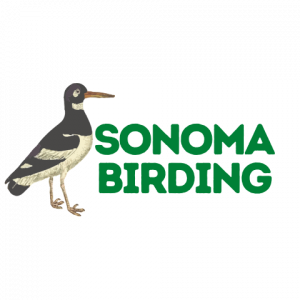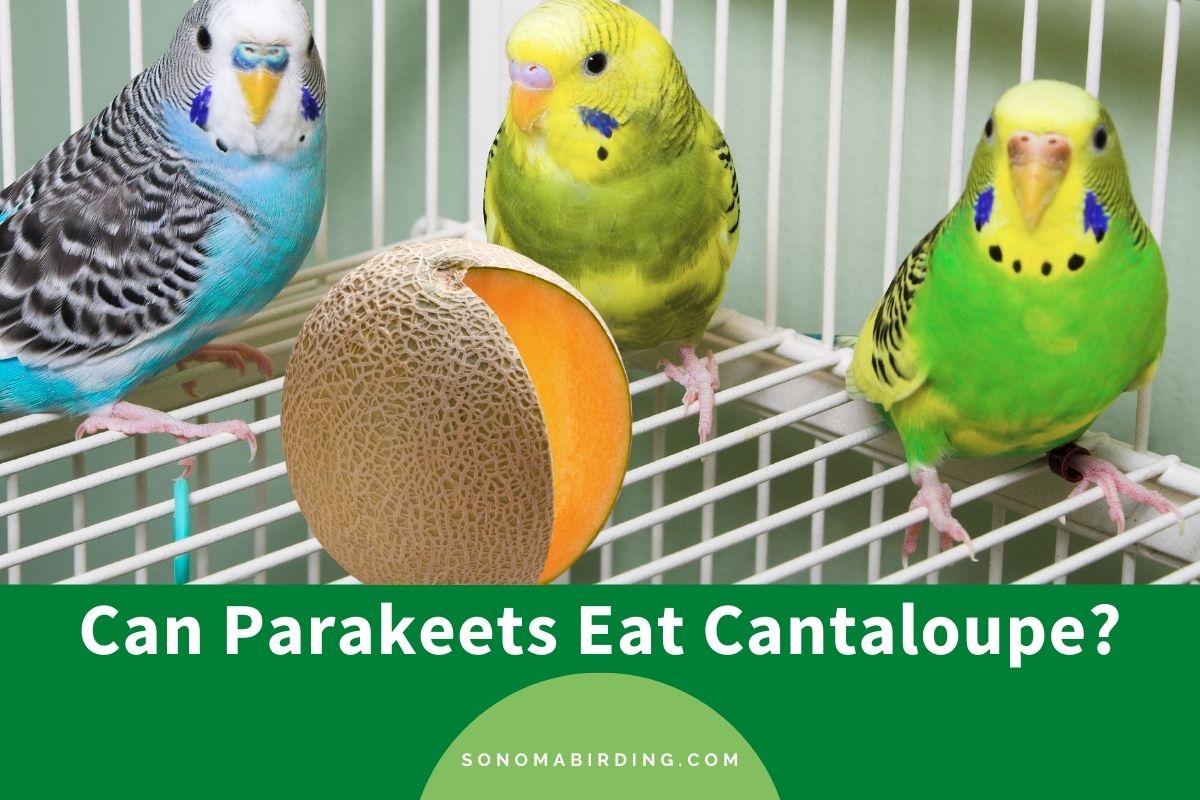Although there’s a lot of confusion about cantaloupes being a fruit or a vegetable, we all can agree that they’re delicious and healthy treats. Some of us might like to eat cantaloupes raw, while others prefer to roast them before eating. But what about your feathered friends?
Can parakeets eat cantaloupe? Yes, they can. The tender, juicy flesh of cantaloupes is as appealing to these birds as it is to us. Moreover, cantaloupe has a lot of health benefits to offer parakeets as well. Along with the flesh of this fruit, its seeds are also safe and healthy for your pets. Just feed them small amounts of cantaloupes if you don’t want the nitrates to stunt their growth.
In this article, I will attempt to answer all your queries and doubts about feeding cantaloupes to your pet parakeets.
Will parakeets eat cantaloupes?
When it comes to feeding fruits to birds, it is easier to be certain about wild birds like thrushes, robins, and waxwings than parrots.
While all these birds are frugivores and like almost all fruits as a general rule, parrots like parakeets are primarily granivores, as you must already know. And when you feed a granivore bird a fruit, particularly one as picky as a parakeet, you can never be certain if they’ll like it.
So, will parakeets eat cantaloupes or not? Well, a majority of pet parakeets have shown a keen interest in eating cantaloupes when served these fruits. They enjoy gorging in the tender, sweet flesh of cantaloupes and can never get enough.
Considering the reviews of other parakeet owners, you can go ahead and offer some of the cantaloupe flesh to your feathered pets as well. However, if they seem to avoid it repeatedly, take a hint and pick another fruit.
Is cantaloupe healthy for parakeets?
Once your feathered pets are used to eating cantaloupe, you must consider its impact on their health before feeding them too many treats. So, will these fruits be healthy for them?
Well, as far as fruits and veggies go, cantaloupe is significantly nutrient-dense. It is a muskmelon species that comes from the Cucurbit family, the family of pumpkin, cucumbers, and squash.
And for those of you who don’t know it already, all Cucurbit plants are incredibly nutritious. Not only the flesh of their fruits is healthy, but so is its peel, seeds, and even roots and leaves. So, if your feathered friends are growing fond of cantaloupes, you should be overjoyed.
To get you better acquainted with these fruits’ nutritional richness, I’ve curated a table that displays their nutritional breakdown. Take a look:
| Nutrients | Quantity |
|---|---|
| Vitamin A | 3,382 IU |
| Vitamin B1 (Thiamin) | 0.041 mg |
| Vitamin B2 (Riboflavin) | 0.019 mg |
| Vitamin B3 (Niacin) | 0.734 mg |
| Vitamin B4 (Choline) | 7.6 mg |
| Vitamin B5 (Pantothenic acid) | 0.105 mg |
| Vitamin B6 (Pyridoxine) | 0.072 mg |
| Vitamin B9 (Folates) | 21 mcg |
| Vitamin C | 36.7 mg |
| Vitamin E | 0.05 mg |
| Vitamin K | 2.5 mcg |
| Calcium, Ca | 9 mg |
| Iron, Fe | 0.21 mg |
| Magnesium, Mg | 12 mg |
| Potassium, K | 267 mg |
| Sodium, Na | 16 mg |
| Phosphorus, P | 15 mg |
| Zinc, Zn | 0.18 mg |
| Manganese, Mn | 0.041 mg |
| Copper, Cu | 0.041 mg |
| Selenium, Se | 0.4 mcg |
| Fluoride | 1 mcg |
| Carbohydrates | 8.2 g |
| Dietary fibers | 0.9 g |
| Sugar | 7.9 g |
| Protein | 0.8 g |
| Fat | 0.2 g |
| Calories | 34 kcal |
Serving size: 100 grams
Are you curious what these nutrients can do for your little pet parakeet? Well, not very different from how they help us, but let’s get into the details now.
Cantaloupe is rich in Vitamin A
Vitamin A is a vitamin your feathered friends need in abundance. It not only supports their eye health but also regulates the smooth functioning of their cardiovascular system.
Additionally, the beta-carotene in this vitamin is also responsible for its bright, shining plumage. Some studies also indicate that eating cantaloupes had a positive impact on their red blood cell production.
Cantaloupe contains B-complex vitamins
All 12 vitamins in the B-complex family have various roles to play in your bird’s health. Out of all these vitamins present in cantaloupes, folates are by far the most important. They are crucial for the parakeet’s brain health and can also strengthen their immune health against cancer.
Vitamin E is also present in cantaloupes
Vitamin E is a rare vitamin to come by among fruits and veggies. It is also equally vital for your parakeets, as it optimizes their appetite and makes them feel energetic all day long. Vitamin E is even more crucial in female parakeets, as it ensures that their offspring will be healthy.
Cantaloupes are full of antioxidants
Beta-carotene is not the only antioxidant found in cantaloupes. These fruits also contain tocopherol and other antioxidants, all of which together fight against the oxidative damage in their cells caused by free radicals.
Cantaloupes can strengthen parakeet’s immune health
Which nutrient is responsible for building our immune health? You’re right; it’s Vitamin C that builds the immunity of all animals, birds, and humans. As you can see in the table, 100 grams of cantaloupe consists of about 36 milligrams of Vitamin C, which is optimum for strengthening your pet’s immune health.
Cantaloupes offer dietary fibers and pectin
Both these nutrients are essential for your pet’s healthy gut. These aids the digestive processes within their bodies and promote healthy gastrointestinal functions.
Cantaloupes are rich in carbs and protein
Apart from fibers, the other major macronutrients that all parakeets need are carbs and protein. While carbs are their central energy source, protein maintains their muscle and feather health. Both are present in cantaloupes in abundance.
Cantaloupes have low sugar and calorific count
Along with all these healthy qualities, cantaloupes also have a low sugar level, which makes sense since they’re botanically considered vegetables and not fruits. Additionally, cantaloupes are also low in calories, which is why you can rest assured that they won’t make your parakeets fat.
With this, we come to the conclusion that cantaloupes are indeed a healthy addition to your feathered pet’s diet.
How much cantaloupe is too much for parakeets?
No matter how nutritious, any fruit or vegetable should always be fed to your parakeets in moderation. Keep in mind that these aren’t frugivores. Their staple diet comes from grains and seeds, and fruits and other greens should only make 20% of their diet. The same rule applies to cantaloupes as well.
To give you a general idea, you should only feed cantaloupe to your pets once a week, and their serving portion should be no bigger than an ounce. Wondering what happens if they eat more cantaloupe than that? Let’s find out.
The issue of nitrates
Many of you might not know this, but the nitrate content of cantaloupes is quite high, just as in the other melons. And if birds consume more nitrate, it could end up decreasing their growth rate or even stunting their growth altogether.
This is why I’d suggest you stick to the recommended amount while feeding your birdies cantaloupe, or any other melon for that matter. Sometimes, your pets might badger you for more, but you shouldn’t give in; remember, it’s for their own health.
Can parakeets be allergic to cantaloupes?
When it comes to an allergic reaction, parakeets, or all birds in general, are not so different from humans. Some birds could have an allergic reaction to cantaloupes, while others would be completely fine eating it.
Among humans, the allergic reaction to cantaloupes is termed “Anaphylaxis.” Its symptoms include throat or tongue swelling, dramatic drop in blood pressure, light-headedness, and constricting airways.
If you notice these or any other strange signs in your pets after you feed them cantaloupes, get them checked by an avian vet right away.
Cantaloupe seeds for parakeets: a good or bad idea?
Whenever you’re preparing any fruit or vegetable to feed your little birdies, the first step generally involves getting rid of the seeds. Some seeds are known to contain amygdalin that can be lethal to the birds, while others are simply choking hazards.
Since cantaloupes are seeded fruits as well, you must be wondering what to do with their seeds when you’re feeding them to the parakeets? Should you remove them or let your pet eat them?
Well, cantaloupe seeds are completely safe and healthy for your feathered friends. They’re neither tough enough to pose a choking threat nor filled with amygdalin. In fact, these seeds:
- Are rich in fibers and can enhance their digestion.
- Have a soothing effect on their nervous system.
- Can reduce your bird’s blood sugar levels.
- Optimize the strength of their plumage.
Therefore, you can certainly feed these seeds to your little birdies. In fact, I strongly recommend it.
Conclusion: Can parakeets eat cantaloupe?
Let’s revisit our initial question: can parakeets eat cantaloupe? Yes, they sure can. Cantaloupes are popular fruits among most birds, including parakeets and several other parrots.
The flesh of cantaloupe is filled with a variety of nutrients, and so are their seeds. Both of these things are safely edible for your feathered pets. However, due to the presence of sugar and nitrates in them, I’d recommend you to feed them these treats in moderation.

